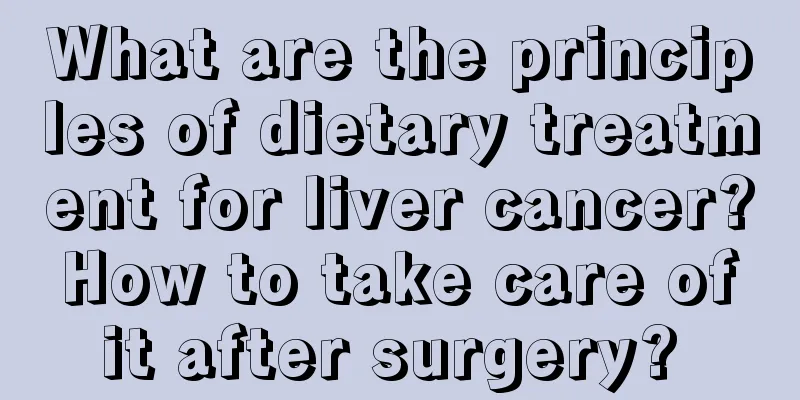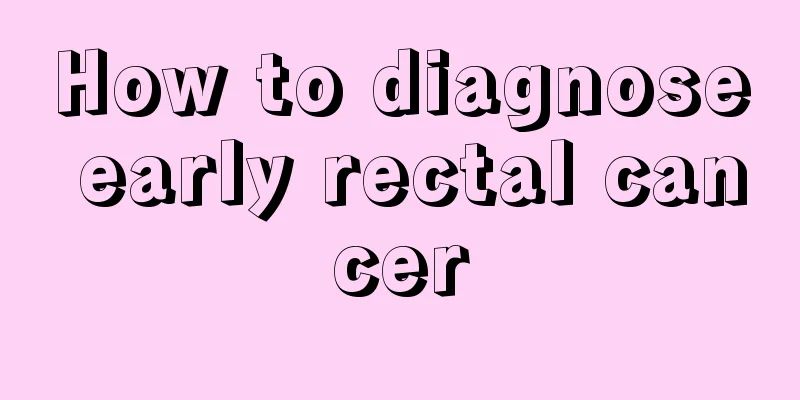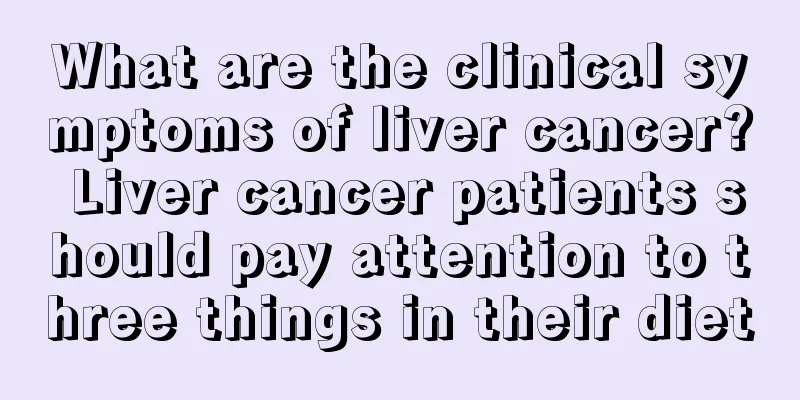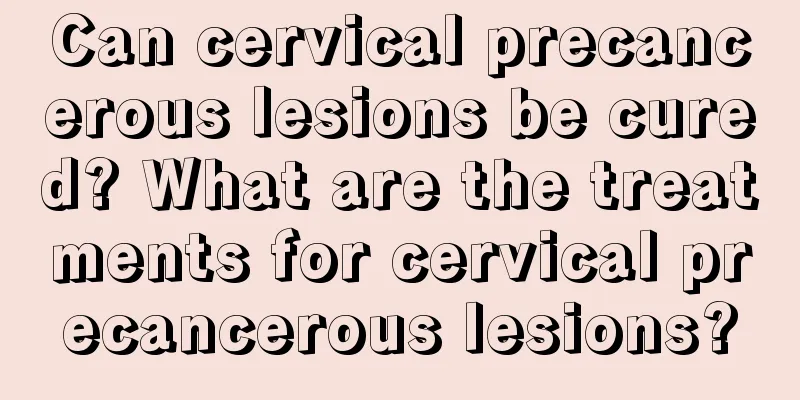What are the principles of dietary treatment for liver cancer? How to take care of it after surgery?

|
Liver cancer is highly malignant and rapidly progresses among digestive tract tumors. Once diagnosed, active treatment measures should be taken, including early surgical treatment and chemotherapy. Nutrition should be strengthened both before and after surgery to reduce the body's consumption. Usually, intravenous nutrition is used as supportive treatment within 4 days after surgery. The implementation of intravenous nutrition can be divided into central venous infusion and peripheral venous infusion. Central venous infusion usually uses a subclavian vein or internal jugular vein puncture and cannulation, which must be performed in a hospital. It must be done under strict aseptic techniques, otherwise serious infection may occur, affecting continued treatment and even threatening life. The principles of dietary treatment for liver cancer are as follows: 1. The energy source of intravenous nutrition is glucose. The dual-energy intravenous nutrition solution of fat emulsion is beneficial to maintain the body's protein synthesis and energy needs. When the condition gradually improves, it should be changed to enteral nutrition. 2. After liver cancer surgery, the normal digestion and absorption function of the digestive tract is affected. Symptoms such as anorexia, nausea, and poor appetite may occur. Sometimes the appetite is still good, but the patient cannot eat. Therefore, patients must be encouraged to start with the simplest diet. When giving intravenous nutrition, half-amount clear liquid food can be given first, and then full-amount clear liquid food can be used later, mainly rice soup, vegetable juice, and sieved meat soup; if there are no complications, half-amount semi-liquid food with less residue can be given after 10 days, and the quality and quantity of the diet can be gradually increased later. 3. Liver cancer patients should eat small and frequent meals, avoid greasy food, and eat light and delicious food, including fresh vegetables, fruits, and less irritating food. They should use more cooking methods such as steaming, stewing, boiling, blanching, and mixing, and reduce the amount of various seasonings. 4. When patients are given chemotherapy after surgery, they will have many symptoms. That is, chemotherapy reactions, poor appetite, nausea, vomiting, decreased white blood cells, hair loss, etc. should be common. The diet should be gradually adjusted according to the specific conditions of the patients. A light, low-fat, thick liquid diet should be used. The cooking method should be particular. The food should be extremely soft, easy to swallow, and easy to digest and absorb. Attention should be paid to the supplementation of vitamins, minerals and trace elements. Fruits can be used to satisfy hunger when necessary. In short, when liver cancer patients undergo surgery and chemotherapy, it will have a series of effects on nutritional metabolism, so it is necessary to adjust the nutrition to help the patients get through the difficult times. |
<<: What should I do if I cough up blood due to lung cancer? How is lung cancer treated?
>>: Is liver disease contagious? Is liver cancer contagious?
Recommend
What should I eat if I have teratoma
Teratoma is a type of tumor. Clinically, this tum...
What should I do if ringworm and peeling appear on my face? How to solve it
There are many types of facial skin diseases, amo...
Analysis of common treatment methods for cardiac cancer
With the continuous advancement of medical techno...
How to wake up a person who is in a coma due to cerebral infarction
Coma is a very common phenomenon for patients wit...
Can patients with nasopharyngeal cancer eat light soy sauce?
Can people with nasopharyngeal cancer eat light s...
What are the symptoms of lung metastasis from nasopharyngeal carcinoma
Symptoms of nasopharyngeal carcinoma lung metasta...
Do invisible braces hurt?
Teeth are a very important part of the human body...
The harm of toilet cleaner to human body
If there is a water outage in our toilet, you wil...
How many days after breast cancer surgery will the stitches be removed
How many days after breast cancer surgery should ...
What are the items in the endometrial cancer review? Review these categories
The follow-up items for endometrial cancer vary a...
My face feels hot when I wake up in the morning
If people's skin is in a cold state and is su...
High-intensity exercise
To maintain good health, moderate exercise is act...
What to do if a tooth has a cavity and hurts
In daily life, many people suffer from toothache....
What are the symptoms of nasopharyngeal carcinoma in the late stage?
Experts remind that the symptoms before death of ...
Seven things to do before going to bed to stop you from suffering from insomnia and dreaminess
Not getting enough sleep can harm your health. I ...









